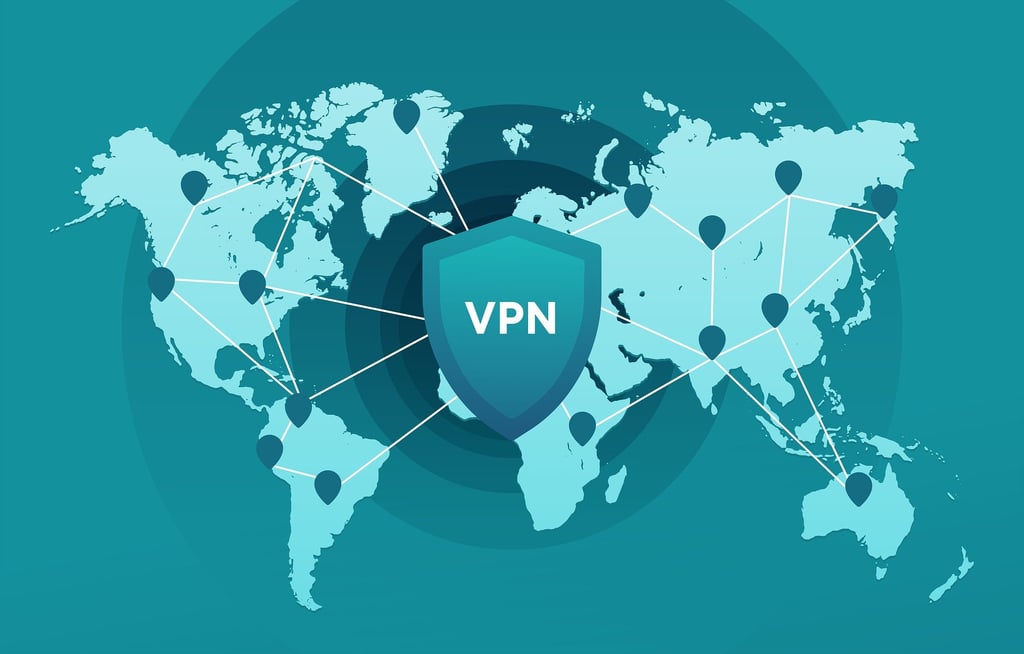

Virtual Private Networks (VPNs), both IPSec and SSL, allow remote connections all over the globe.
Unsure which VPN protocol to choose? Read our in-depth comparison of SSL vs. IPSec VPNs and determine which is the best fit for your network security needs.


Secure Sockets Layer (SSL) and Internet Protocol Security (IPsec) are encryption protocols used to create secure connections over virtual private networks (VPNs).
While both VPN protocols are capable of providing privacy to your online activities, the main difference between the two lies in the way they establish secure connections between a client device and a VPN server.
This guide will dive into the similarities and differences between SSL and IPsec VPNs, and help you choose which is better for your business network.
Here’s a comparison table that highlights the core differences between SSL and IPsec VPNs:
| Features | SSL | IPsec |
|---|---|---|
| OSI layer | Application layer | Network layer |
| Configuration | Simple | Complex |
| Implementation | Can be accessed through a web browser and any device with an internet connection | Requires specific client software to be installed |
| Application | Web applications | All network protocols |
| Endpoints | Any device with a web browser | Only approved and configured devices installed with client software |
| Access control | User-based | Device-based |
| Cloud/on-premise | Integrates better with cloud-based applications | Works better with on-premise systems run within an organization’s internal infrastructure |
An SSL VPN is a virtual private network that uses the SSL/TLS protocol to create a secure and encrypted connection between a remote user and a private network.
SSL VPNs allow remote users to access private networks from any location as long as they have an internet connection. This makes it possible for employees to work from home or on the go while still having access to their company’s data and resources.
Some of the key benefits of SSL VPNs are that they are easy to set up and use, do not require any special software or hardware installed on the client side, and can be accessed from any web browser. This makes SSL VPNs a popular choice for small to medium-sized businesses that need to provide remote access to their employees but don’t have the resources to set up a dedicated VPN infrastructure on every device within the organization.
There are two primary options to choose from with an SSL VPN: portal and tunnel.
SSL VPNs are designed to work like a gateway or entry point to a private network. So when a user attempts to access resources on the network through an SSL VPN, they first establish a connection to the SSL VPN gateway, which is usually a web-based portal that verifies the user’s credentials to determine whether to give the user access.
Depending on the configuration, the SSL VPN can also enforce things like restricting access to certain resources and limiting the type of devices that can connect to the network.
Once the secure connection is established, the user can access resources on the network. The SSL VPN gateway acts as a proxy, encrypting all traffic between the user’s device and the network and decrypting it on the other end.
IPsec VPNs are a set of protocols designed to secure connections between devices at the Internet Protocol (IP) level.
IPsec VPN works by encrypting and authenticating all the data that travels between the devices connected to the VPN, effectively simulating a long-distance LAN. This ensures that the data remains secure and cannot be modified or intercepted by unauthorized parties.
Because IPsec VPNs connect at the IP level, this type of VPN connection makes it possible for IT administrators to see the IP addresses of the devices that access the network.
There are two primary options to choose from with an IPSec VPN: transport and tunnel.
IPsec VPNs require specialized hardware and software to be installed on every device before it can connect to the network.
Once the necessary client software is installed in both the sending and receiving devices, it initiates an encryption process using a key exchange between the connected devices. This key exchange allows data to be decrypted by devices connected to the VPN.
Once connection is achieved, data is transmitted in small packets through the network using a transport protocol. This data passes through an authentication process to ensure it comes from a trusted source.
IPsec and SSL VPNs are both good options for establishing secure virtual private networks in organizations. The choice of which one to adopt depends on factors such as the organization’s security requirements, the type of applications it uses, and the level of control it wants over its remote access infrastructure.
IPSec VPNs are a good choice for organizations requiring high-end security and more complex network infrastructure.
They are best suited for organizations that need to connect two or more networks securely, as they offer site-to-site connectivity.
They are also a good fit for organizations that need to ensure their data’s confidentiality, integrity, and authenticity, as IPSec VPNs provide end-to-end encryption and strong authentication algorithms.
SSL VPNs are good for organizations that need to provide secure remote access to individual users or devices, such as telecommuters, contractors, or mobile workers.
SSL VPNs are easier to set up and manage than IPSec VPNs, and they work well for organizations that need to provide remote access to web-based applications.
SSL VPNs also provide access controls that can be used to restrict users’ access to specific resources, such as applications or data.
Both IPSec VPNs and SSL VPNs are excellent choices for organizations that need secure remote access. The choice between the two depends on several factors, including the organization’s security requirements, the type of applications your organization uses, and the level of control it wants over its remote access infrastructure.
Larger organizations—or those in highly regulated industries—with dedicated network administration teams, and those looking to securely connect two or more networks, may want to invest in an IPsec VPN.
Meanwhile, smaller companies or those with a highly dispersed workforce that are seeking a reliable, secure connection to proprietary apps and data might be better served with an SSL VPN.
Ultimately, the choice between IPsec VPNs and SSL VPNs will be based on the organization’s specific needs, resources, and objectives.
We reviewed the best VPN services to keep your networks and data secure.


Franklin Okeke is a contributing writer to Enterprise Networking Planet, as well as an author and freelance content writer with over 5 years of experience covering cybersecurity, artificial intelligence, and emerging technologies. In addition to pursuing a Master's degree in Cybersecurity & Human Factors from Bournemouth University, Franklin is an entrepreneur with a passion for startups, innovation, and product development. His writing also appears regularly in TechRepublic, ServerWatch, and other leading technology publications.

Enterprise Networking Planet aims to educate and assist IT administrators in building strong network infrastructures for their enterprise companies. Enterprise Networking Planet contributors write about relevant and useful topics on the cutting edge of enterprise networking based on years of personal experience in the field.
Property of TechnologyAdvice. © 2025 TechnologyAdvice. All Rights Reserved
Advertiser Disclosure: Some of the products that appear on this site are from companies from which TechnologyAdvice receives compensation. This compensation may impact how and where products appear on this site including, for example, the order in which they appear. TechnologyAdvice does not include all companies or all types of products available in the marketplace.